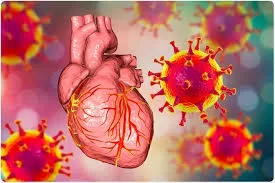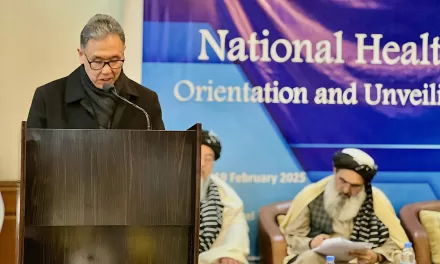
In a recent publication in the Hypertension Journal by the American Heart Association, fresh research reveals that an examination of electronic medical records encompassing more than 45,000 individuals has uncovered a notable connection between Covid-19 infection and the emergence of high blood pressure.
Although Covid-19 typically presents more severely in patients with preexisting high blood pressure, leading to heightened rates of hospitalization and mortality in contrast to those with normal blood pressure, it remains uncertain whether the SARS-CoV-2 virus could potentially trigger the onset of high blood pressure or exacerbate existing hypertension. Tim Q. Duong, Ph.D., the senior author of the study and a professor of radiology, as well as the vice chair for radiology research and associate director of Integrative Imaging and Data Science at the Center for Health and Data Innovation at Albert Einstein College of Medicine and Montefiore Health System in New York City, stated these viewpoints.
Distinguishing itself as the inaugural investigation of its kind, this study delves into the disparities in the emergence and connected risk elements pertaining to persistent high blood pressure in individuals afflicted with Covid-19, in comparison to influenza—a comparable respiratory virus. The designation of hypertension is bestowed upon individuals whose systolic and diastolic readings reach or surpass 130/80 mm Hg, aligning with the parameters delineated in the 2017 ACC/AHA Guideline for the Prevention, Detection, Evaluation, and Management of High Blood Pressure in Adults.
Utilizing data sourced from electronic medical records, an analysis was conducted at the Montefiore Health System situated in the Bronx, New York, catering to a sizable and diverse population encompassing various racial and ethnic backgrounds.

“As a result of the substantial impact of Covid-19 in comparison to influenza, these statistics are cause for concern and imply that a larger number of patients are likely to experience the onset of high blood pressure in the future, potentially leading to significant public health challenges,” Duong emphasized. He further conveyed, “These findings emphasize the importance of proactive screening for hypertension in individuals at risk following their recovery from COVID-19, allowing for early identification and management of hypertension-linked complications, such as cardiovascular and kidney ailments.”
The study authors pointed out that the individuals under examination primarily hailed from communities characterized by lower socioeconomic status, which could augment their vulnerability to developing high blood pressure post-Covid-19 infection.
Additional factors might also have contributed to the development of high blood pressure among the study participants. These include the ramifications of isolation, psychosocial stress, diminished physical activity, unhealthy dietary patterns, and weight gain throughout the Covid-19 pandemic. The researchers also underscored the necessity for extended follow-up studies to determine whether the impact of Covid-19-related complications on the heart and blood pressure regulation could naturally resolve over time or potentially result in enduring effects on the cardiovascular systems of patients.
Sources ANI











